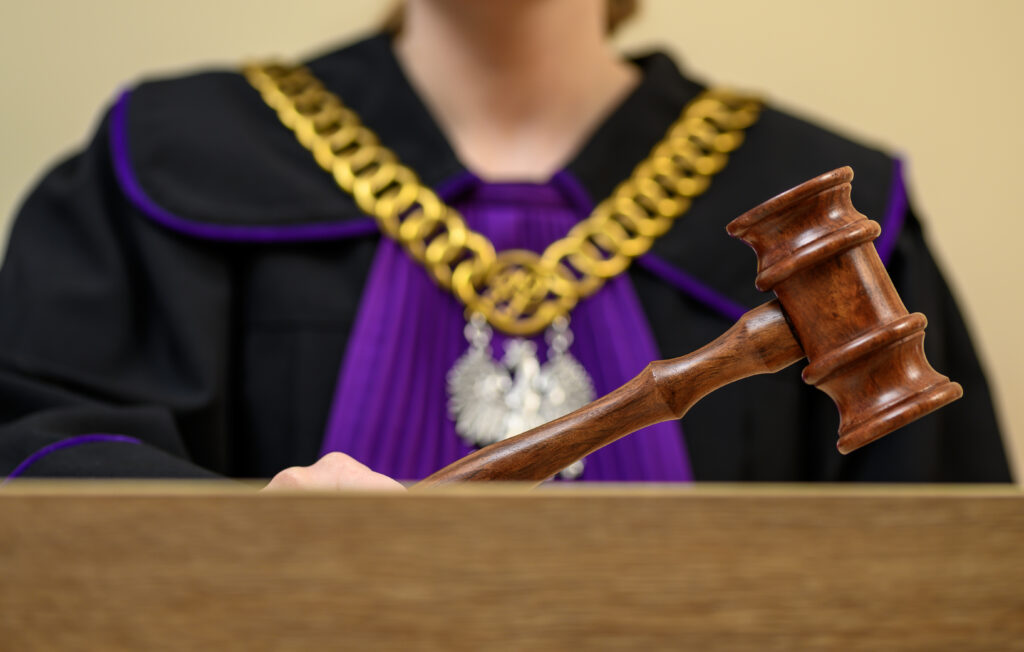- The Iustitia Association has proposed that judges appointed since 2018 should pay compensation to the state treasury out of their own pockets for settlements reached by Poland before the European Court of Human Rights.
- This proposal has been criticised by a number of experts. Prof. Piotr Kardas of the Jagiellonian University emphasised that it is difficult to speak of the unlawfulness of the judges’ actions, which is a prerequisite for demanding compensation from them, as long as the presumption of conformity of the current wording of the National Council of the Judiciary Act with the Constitution remains in force.
- Furthermore, the professor noted that there is a serious problem with identifying a constitutional rule or principle with which the provisions of the 2017 amendment to the National Council of the Judiciary Act are inconsistent.
- At the same time, judges from Iustitia reiterated in a press interview that there is no need to adhere to the letter of the law.
On 31 March, the Polish Judges Association ‘Iustitia’ submitted 20 proposals to Minister of Justice Adam Bodnar, which, according to their authors, are intended to improve the functioning of the courts by 2026.
Many of these proposals raise serious doubts from the point of view of the rule of law. For example, the first demand calls on the Minister of Justice to dismiss disciplinary spokespeople before the end of their term of office. However, as recently reported, in connection with Minister Bodnar’s attempt to dismiss Przemysław Radzik from the position of Deputy Disciplinary Ombudsman for Judges, there is no legal provision that authorisingsuch action.
Another demand, the fifth one, has had a particular resonance in the public sphere. It states that judges appointed since 2018 would have to pay compensation to the state treasury out of their own pockets if, as a result of proceedings in which they participated, Poland reached a settlement with the European Court of Human Rights in connection with a violation of the right to a fair trial. According to Iustitia, this could be based on Article 415 of the Civil Code, which states: whoever causes damage to another person through their own fault is obliged to repair it.
However, this proposal has triggered a wide avalanche of comments from experts who have pointed to serious legal doubts in this regard. Prof. Piotr Kardas from the Jagiellonian University emphasised that: we do not have any formally established position in Poland resolving the issue of the conflict between the 2017 Act on the National Council of the Judiciary and the Constitution. He also pointed out that until an authorised body (such as the Constitutional Tribunal) explicitly declares that the current wording of the National Council of the Judiciary Act is unconstitutional, the presumption of its constitutionality will continue to apply. In such a situation, it is impossible to prove that the action is unlawful.
Moreover, in a more detailed analysis, Professor Kardas even expressed doubts as to whether there are any grounds for concluding that the current method of selecting members of the National Council of the Judiciary who are judges (by the Sejm) is unconstitutional. He noted: There is also a serious problem with specifying the basis for the unconstitutionality of this Act, i.e. indicating the constitutional rule or principle with which the provisions of the Act on the National Council of the Judiciary, as amended in 2017, are inconsistent. The simplest solution would, of course, be to demonstrate that the Constitution requires the Act on the National Council of the Judiciary to be drafted in such a way as to guarantee judges the right to appoint their own representatives to the National Council of the Judiciary. Such a provision would imply far-reaching corporatism, which may explain the scepticism in this regard. On the other hand, the thesis that the Constitution contains the principle of representation of the judicial community in the KRS, which is linked to the requirement that the law guarantee judges real influence over the selection of the so-called judicial members of the KRS, is based on a combined interpretation of a number of provisions of the Constitution and the derivation of a minimum constitutional standard for the appointment of KRS members. In this regard, interesting positions have been presented in the debate concerning the conflict between the December 2017 amendment to the KRS Act and a conglomerate of constitutional principles and rules. However, this issue is still the subject of serious analysis and debate. It is therefore difficult to speak of a position on unconstitutionality that would be widely accepted by the legal community.
Let us recall that in its judgment of 25 March 2019 (ref. no. K 12/18), the Constitutional Tribunal unequivocally and definitively ruled that the current method of selecting members of the KRS who are judges by the Sejm of the Republic of Poland is consistent with the Constitution.
Professor Kardas also emphasised that when considering the issue of awareness – i.e. guilt – on the part of those issuing rulings, it is also necessary to assess whether public authorities have done everything possible to prevent the issuance of rulings which, on behalf of the Republic of Poland, should not have been issued.
Włodzimierz Brazewicz of the Court of Appeal in Gdańsk, appointed by Minister Bodnar as the so-called ad hoc disciplinary ombudsman, also warned of the potentially negative consequences of adopting such a solution. He pointed out that it could lead to financial liability for judges for other violations of the European Convention on Human Rights, unrelated to the circumstances of their appointment: It would be very risky and dangerous for the State Treasury to pursue recourse claims against judges appointed to judicial positions after 2018 on the basis of an ECtHR ruling or a settlement. MSuch a claim would also have to concern a violation of Article 6 of the European Convention on Human Rights, i.e. the right to a court hearing due to the length of proceedings.
Supreme Court Judge Wiesław Kozielewicz of the Criminal Chamber stated that in the current legal situation it is difficult to find a convincing legal basis for such a solution. If a relevant provision were to be introduced in the future, it could not have retroactive effect.
There are also more decisive voices. Judge Kinga Grzegorczyk of the Regional Court in Łódź, a board member of the National Association of Judges ‘Aequitas’, pointed out that in a situation where, before 2017, the Constitutional Tribunal issued rulings finding defects in the appointment of judges, it was However, no one thought that these judges should bear financial responsibility for the actions of the legislature. Iustitia’s idea therefore means that, for the first time, judges would be financially liable to the State Treasury for the fact that the legislature adopted provisions with a specific content. In her opinion, the proposal is a retaliatory measure that undermines the principle of judicial independence. It described the demands as: aimed at intimidating judges and attempting to put pressure on the Polish government to take the actions expected by a group of judges from the Iustitia and Themis associations as soon as possible, contrary to the Polish Constitution and the recommendations of the Venice Commission.
The matter was summed up succinctly by Zygmunt Drożdżejko, President of the National Association of Judges ‘SedziowieRP’ and Judge of the Court of Appeal in Krakow, who wrote on the X platform:
Those who enter into settlements should pay. The Constitutional Tribunal ruled that the judgments of the European Court of Human Rights are ineffective in determining the status of judges. Therefore, there are no legal grounds for entering into such settlements.
It is worth adding that this is not the only controversial action taken by the Iustitia Association in recent times. In an interview published on 14 April in Gazeta Wyborcza, Waldemar Paś spoke with representatives of the association, Prof. Krystian Markiewicz and Bartłomiej Przymusiński, who said, among other things:
I am afraid that if the situation does not improve, the judicial community will stop supporting the ministry’s actions.
Such statements call into question the actual intentions of the association’s activists regarding their attitude toward judicial independence and the principle of the separation of powers. This was aptly criticised by representatives of the ‘SędziowieRP’ association:
The judicial community has pledged allegiance to the LAW, not to any politician! Krystian Markiewicz’s Freudian slip proves one thing: the servility of this faction castrates the judiciary of its independence, subordinating it to political power through the hands of this judge’s team.
The interview also featured other controversial statements. For example, in response to the interviewer’s comment that: ‘Some pro-democracy lawyers in Poland – such as Dr Marcin Szwed from the Helsinki Foundation, who is active on social media and whose views are reportedly highly valued by Minister Bodnar – emphasise the importance of the letter of the law,’ Judge Markiewicz replied: This is a small group of lawyers – thus admitting, in a way, his willingness to act contrary to the letter of the law. He later elaborated: Recently, the best lawyers around the world have been reminding formalistic aesthetes that restoring order is more important than clinging to laws that have ruined the rule of law.
However, the question arises what values and principles, according to Judge Markiewicz, could justify departing from the letter of the law? Looking at the actions and declarations of both the Iustitia Association and Minister Bodnar to date, one may question whether these are the values of truth, justice, goodness and beauty, defined in the preamble to the Constitution as having their source in God (even if individual citizens derive them from other sources), or rather values contrary to them.
Image source: Adobe Stock.



